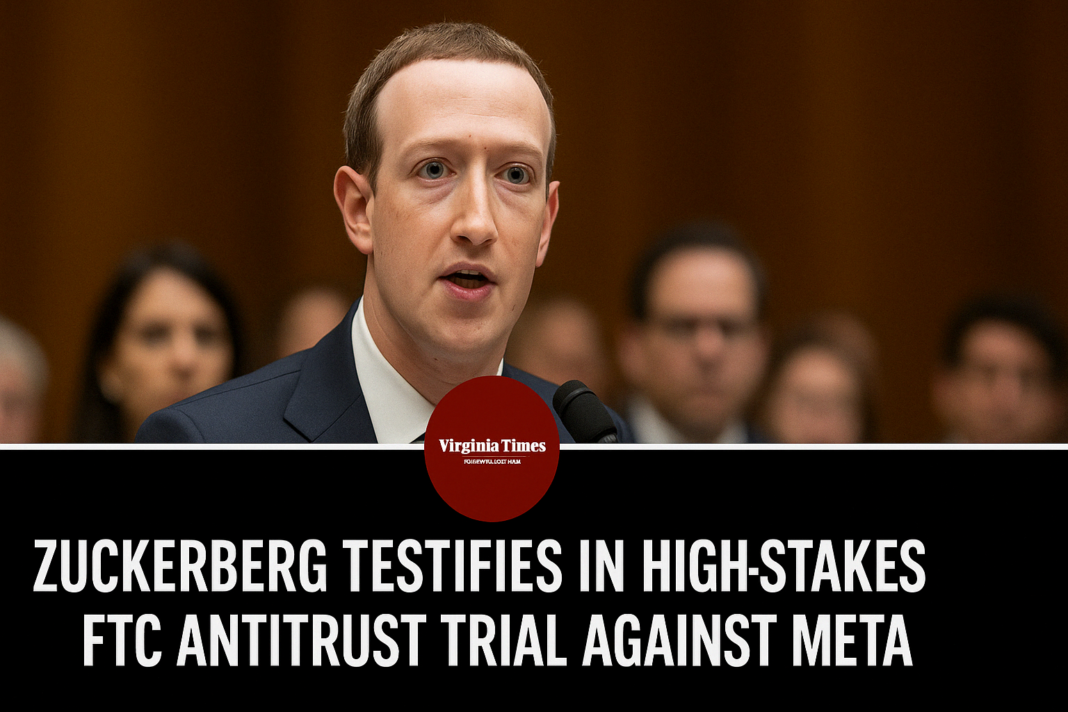WASHINGTON, D.C. — Meta CEO Mark Zuckerberg took the stand this week in a landmark antitrust trial brought by the Federal Trade Commission (FTC), to represent the tech company against claims it illegally stifled competition by acquiring potential competitors Instagram and WhatsApp.
The suit, now in federal court in Washington, could remake Meta’s future — and the future of the social media industry. The FTC is seeking an order from the court that would force Meta to unwind its previous acquisitions, claiming they were all part of a multiyear strategy to eliminate competition.
Zuckerberg Defends Instagram Acquisition
In his testimony, Zuckerberg admitted that Facebook’s 2012 buyout of Instagram was also partly driven by the app having superior photo-sharing features. “They had a better camera than we had,” he told the court.
The charge is tailor-made for the FTC’s best case: that Meta, in its former incarnation as Facebook, sought to “buy or bury” competitive competitors rather than compete on the basis of innovation. The FTC alleges these purchases were not business decisions, but instead strategic moves of monopoly that injured competition in the market and options for the consumer.
As Reuters reports, the FTC’s argument is that the combination had the effect of making Meta more entrenched in the market for personal social networking — a market that has become increasingly difficult for new entrants to enter.
Changing Nature of Social Media
Zuckerberg also testified on how the company’s platforms have evolved. He testified that Meta is no longer fundamentally a network for family and friends interactions but is now a content discovery and entertainment engine.
Just about 20% of what individuals view on Facebook and 10% on Instagram is increasingly being contributed by individuals they know,” Zuckerberg explained to Vanity Fair, quoting the number. He asserted that this evolution runs counter to the FTC’s restricted definition of Meta’s market, and that the platforms can’t be measured on past use cases alone.
Meta Pushes Back on Monopoly Claims
Meta’s attorneys argued that the FTC is ignoring the broader competitive context. They cited rivals such as TikTok, YouTube, Snapchat, and even Apple’s iMessage as evidence that Meta is not a monopoly in any sensible definition of the market.
Additionally, the defense pointed out that Meta’s services are free to customers, as opposed to conventional monopolies that increase prices. “You don’t have a monopoly when your product is free and your users have alternatives,” argued one Meta attorney in opening statements.
As noted in reporting from the Associated Press, Zuckerberg also fought with lawyers for the FTC over internal emails cited by the government. The CEO disputed characterizations of predatory intentions, claiming that business decisions were driven by market forces and demand from customers.
Broader Consequences of Tech Regulation
The result of this trial may set a big precedent for how the U.S. government controls big technology firms. If the FTC prevails, it may result in the unprecedented breakup of Meta, forcing the company to sell Instagram and WhatsApp.
Legal observers are watching Judge James Boasberg’s handling of the case carefully. His final decision can decide the Biden-era FTC’s authority to challenge other major tech mergers or acquisitions in the future.
Zuckerberg will continue his testimony later this week, joined by other witnesses like former executives, economists, and regulators.
(With inputs from Reuters, Associated Press, Vanity Fair)
A global media for the latest news, entertainment, music fashion, and more.





